Trending
Opinion: How will Project 2025 impact game developers?
The Heritage Foundation's manifesto for the possible next administration could do great harm to many, including large portions of the game development community.

Featured Blog | This community-written post highlights the best of what the game industry has to offer. Read more like it on the Game Developer Blogs or learn how to Submit Your Own Blog Post
Third of a five-part article series based on composer Winifred Phillips' talk during the GDC 2020 online conference in March: "From Assassin's Creed to The Dark Eye: The Importance of Themes." Included: a discussion of fragmentation and variation.

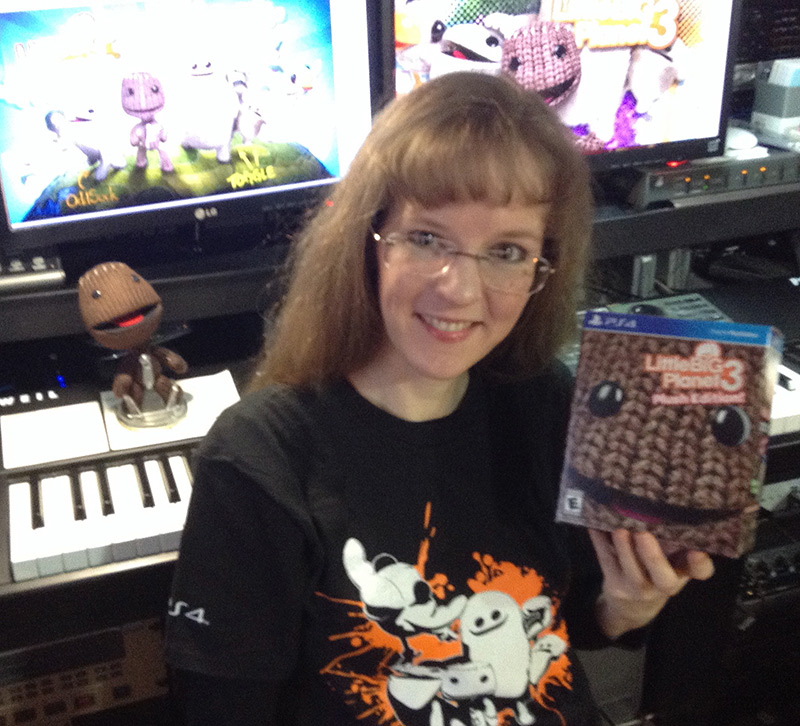
By Winifred Phillips | Contact | Follow
Hi! I'm video game composer Winifred Phillips, and welcome to the third installment of my five article series based on the presentation I gave at this year's online Game Developers Conference that took place this past March. My talk was entitled "From Assassin's Creed to The Dark Eye: The Importance of Themes" (I’ve included the official description of my talk at the end of this article). In my presentation, I discussed the music I composed for several video game projects, including Assassin's Creed Liberation (Ubisoft), God of War (Sony Interactive America), LittleBigPlanet (Sony Interactive Europe), Homefront: The Revolution (Deep Silver), Speed Racer (Warner Bros Interactive), Spore Hero (Electronic Arts), and The Dark Eye: Book of Heroes (Wild River).
In the previous article, we took a look at how thematic material was employed in subtle ways within two of my video game projects - Assassin's Creed Liberation and Homefront: The Revolution. We considered how repetition can reinforce the significance of musical themes, particularly when they are associated with specific narrative ideas, and we talked about how repetition can work to make musical themes memorable and meaningful. But we all know that repetition can get stale if we don’t approach it creatively. So that brings us now to the topic of variation – how to keep themes feeling fresh.
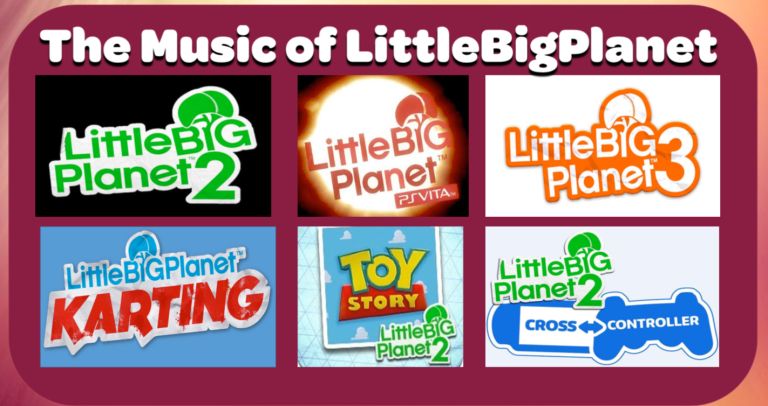
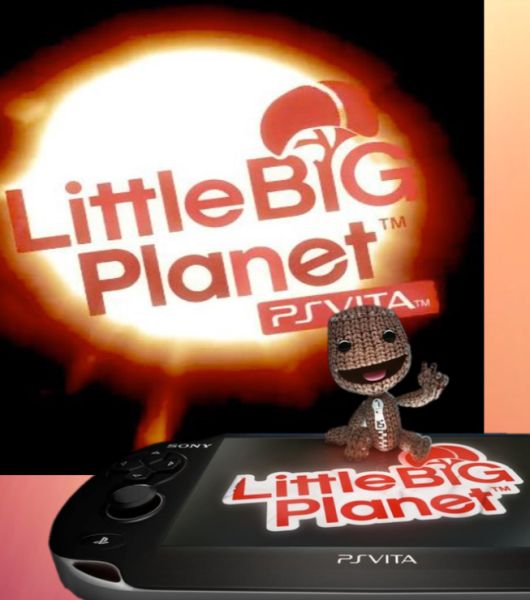 To date, I’ve worked on six LittleBigPlanet games (pictured above) – four in the main franchise and two DLC games. While the music in LittleBigPlanet can be very melodic, the melodies don’t tend to be repeated from one level to another. Because of this, the music has an episodic quality that suits LittleBigPlanet’s episodic gameplay structure very well. Sackboy moves from one world to another, and the music completely changes.
To date, I’ve worked on six LittleBigPlanet games (pictured above) – four in the main franchise and two DLC games. While the music in LittleBigPlanet can be very melodic, the melodies don’t tend to be repeated from one level to another. Because of this, the music has an episodic quality that suits LittleBigPlanet’s episodic gameplay structure very well. Sackboy moves from one world to another, and the music completely changes.
There are, however, a few exceptions to this rule, and it’s a good example of theme and variation in the LittleBigPlanet universe. In LittleBigPlanet Vita, developed by Tarsier Studios for Sony Computer Entertainment Europe, Sackboy explores a world called the “Land of Odd” – which includes Marianne’s garden of living puppets and clockworks. The music I composed for this level included a melody featuring the sound of clockworks and a solo ingénue voice. Later on in the game, that same melody returns during a boat race – except now it’s twice as zany and carried by a hyper trumpet. Here’s what that was like:
While repeating melodies are few in the LittleBigPlanet franchise, they definitely stand out and get noticed, especially when they’re expressed in two dramatically different arrangements. Not all projects will offer the chance to introduce such extreme variation. It’s an example of how far the variation technique can go. And when variation isn’t enough and we need to go further, we can break our themes apart and use fragments of them instead of the whole.
 The music I composed for the video game Spore Hero was very thematic, including lots of repeating melodies. One of the most important of these melodies figured prominently in the main theme, and was a pretty long melody that took awhile to fully state. So it was a puzzle, trying to figure out how to make that melody recur in the game. When it wasn’t possible to present it in its entirety, I used it as a highly-recognizable fragment consisting of five notes:
The music I composed for the video game Spore Hero was very thematic, including lots of repeating melodies. One of the most important of these melodies figured prominently in the main theme, and was a pretty long melody that took awhile to fully state. So it was a puzzle, trying to figure out how to make that melody recur in the game. When it wasn’t possible to present it in its entirety, I used it as a highly-recognizable fragment consisting of five notes:
This five-note fragment became extremely useful in Spore Hero. Here it is in the game’s opening menu:
And here it is in the character creation menu:
Likewise, here is that five note fragment as it appeared in the game's most important and frequently-used stinger:
Finally, here’s a little fun fact – the Spore Hero theme gets pretty heroic towards the end of the game – and this version of the theme got licensed from the publisher and used in a trailer for Avengers Endgame, the highest grossing movie of all time. So here’s a look at that:
Just goes to show that a flexible theme can be used in a lot of different ways, especially when we break it into fragments.
So now we've explored how variation and fragmentation can add utility to our themes. In the next article in this series, we'll take a look at how recurring themes can enhance different types of gameplay, and how a compelling narrative rationale for thematic recurrence can be a powerful tool for a game composer. Until then, thanks for reading!
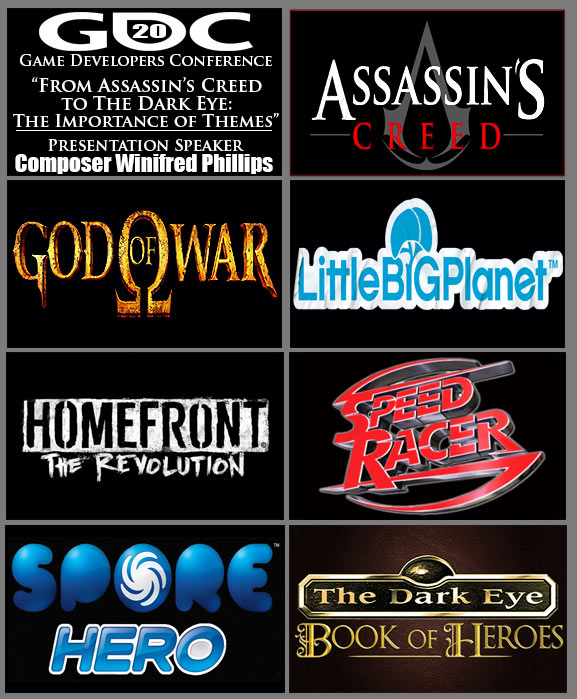
(Game Developers Conference Session Description)
Through an exploration of her work composing music for games such as Assassin’s Creed Liberation, God of War, LittleBigPlanet and the upcoming RPG The Dark Eye: Book of Heroes, composer Winifred Phillips will examine the potential of thematic music to enable a game to stand out as special and unique.
By employing musical themes, a composer can infuse a game with a strong sense of character and originality.
According to research, music heard during activities is remembered vividly. Coupling this with the innately memorable nature of themes allows a game composer to create an indelible musical signature for any game. This talk will examine composition techniques that extend the life and utility of themes. Variation, development, figures, fragmentation, and motifs will be explored, along with examples of themes in combat, menus, cutscenes, and stingers. Finally, dynamic music construction will be considered, including workarounds to enable effective themes within interactive systems.
Using examples from several games, Phillips will discuss specific composition techniques designed to enhance the utility of thematic content. Attendees will learn how themes may be incorporated into specific game music asset types. Also included in the discussion: composition adjustments required by interactive music constructs.
This session will present inspirational ideas for composers seeking to create distinctive musical signatures for their game projects. Discussion of thematic use within different types of game music assets may be helpful for audio developers engaged in preparing music design documents. The talk will be approachable for all levels.
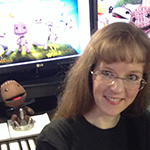 Winifred Phillips is a well-known video game composer whose latest project is the hit PlayStation 5 launch title Sackboy: A Big Adventure (soundtrack album now available). Popular music from Phillips' award-winning Assassin's Creed Liberation score is featured in the performance repertoire of the Assassin's Creed Symphony World Tour, which made its Paris debut with performances by a top 80-piece orchestra and choir. As an accomplished video game composer, Phillips is best known for composing music for games in five of the most famous and popular franchises in gaming: Assassin’s Creed, God of War, Total War, The Sims, and Sackboy / LittleBigPlanet. She is the author of the award-winning bestseller A COMPOSER'S GUIDE TO GAME MUSIC, published by the MIT Press. As one of the foremost authorities on music for interactive entertainment, Winifred Phillips has given lectures at the Library of Congress in Washington DC, the Society of Composers and Lyricists, the Game Developers Conference, the Audio Engineering Society, and many more. Phillips’ enthusiastic fans showered her with questions during a Reddit Ask-Me-Anything session that went viral, hit the Reddit front page, received 14.9 thousand upvotes, and became one of the most popular gaming AMAs ever hosted on Reddit. Follow her on Twitter @winphillips.
Winifred Phillips is a well-known video game composer whose latest project is the hit PlayStation 5 launch title Sackboy: A Big Adventure (soundtrack album now available). Popular music from Phillips' award-winning Assassin's Creed Liberation score is featured in the performance repertoire of the Assassin's Creed Symphony World Tour, which made its Paris debut with performances by a top 80-piece orchestra and choir. As an accomplished video game composer, Phillips is best known for composing music for games in five of the most famous and popular franchises in gaming: Assassin’s Creed, God of War, Total War, The Sims, and Sackboy / LittleBigPlanet. She is the author of the award-winning bestseller A COMPOSER'S GUIDE TO GAME MUSIC, published by the MIT Press. As one of the foremost authorities on music for interactive entertainment, Winifred Phillips has given lectures at the Library of Congress in Washington DC, the Society of Composers and Lyricists, the Game Developers Conference, the Audio Engineering Society, and many more. Phillips’ enthusiastic fans showered her with questions during a Reddit Ask-Me-Anything session that went viral, hit the Reddit front page, received 14.9 thousand upvotes, and became one of the most popular gaming AMAs ever hosted on Reddit. Follow her on Twitter @winphillips.
Read more about:
Featured BlogsYou May Also Like